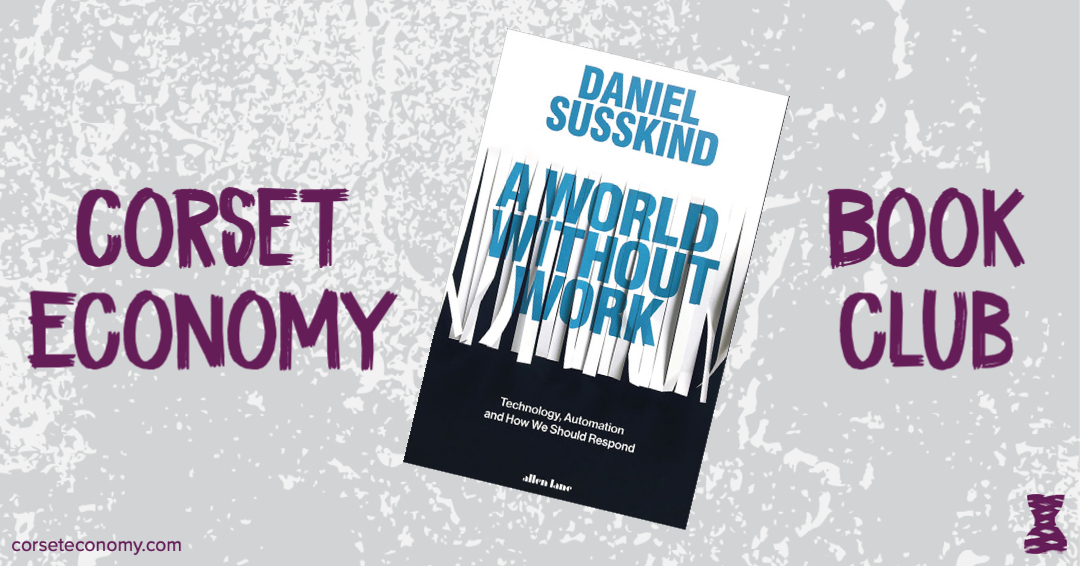Book Club: A World Without Work

We’ve been diving back into our detailed Corset Futures recently with our Map Your Future participants and one of the big subjects that’s come up is the Future of Work. It’s been a huge topic over the past few years as politicians, economists, journalists and TV pundits all question, “what will work look like in the years to come?” We’ve been researching this theme for a decade as it is one of our Corset Laces and so you can trust us when we say we have read a lot on the subject! If you want to read just one book to really understand the topic go for Daniel Susskind’s A World Without Work, our first Book Club pick of the year.
Susskind focuses on the issue of technological unemployment (how AI and automation will affect work), as the biggest factor affecting the Future of Work, highlighting the important distinction between structural unemployment, which is permanent, and cyclical unemployment, which is affected by the state of the economy. He walks us through a comprehensive view of the typical arguments to date around how when automation has reduced jobs, new ones have always been created in their wake. Or as Jason Furman, the chair of President Obama’s Council of Economic Advisers said, “three hundred years of history tells us that [a future with more AI where there may be fewer jobs] can’t be true”. He then explains, clearly and convincingly, why this time it’s different.
One of the biggest ‘a-ha’s for us was his comprehensive take on the whole issue of job polarisation. This is a trend that has been going on for more than a decade, caused by the combination of technology and globalisation. It has hollowed out the once stable middle-skilled jobs, creating a polarised economy with high-skill/high-wage jobs and low-skill/low-job wages. Susskind goes on to explain that AI is further exacerbating this trend, eroding more high-skill jobs, and eventually even low-skill.
While it can be deeply uncomfortable to explore this subject, and read painful truths about what could come, it is also so important to do so. Technological progress could create a utopian leisure society powered by Universal Basic Income and the unpleasant work automated, but it’s as important to look at the real alternative to that picture. Work is more than just income, for many it also provides meaning and purpose and a systemic look is needed to get the whole picture.
What makes his book so powerful is Susskind’s ‘birds eye’ view of the whole subject of the Future of Work, pulling together a wide range of ideas to make an accessible read. He gives a powerful counter-position of the real problems that could come – and some solutions. If you want a really comprehensive understanding of the key issues for the future, this is the book for you.
